Prostate survey finds men embarrassed to talk about problems
It is a common problem for men that’s under-diagnosed and under-treated, but a new prostate survey has revealed why so many are suffering in silence.
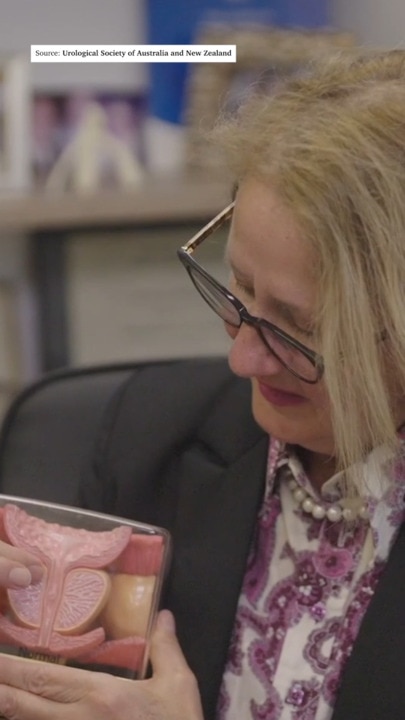
Health
Don't miss out on the headlines from Health. Followed categories will be added to My News.
Aussie men say they are frequently getting up at night because of prostate problems, but many are suffering in silence.
A new survey of more than 1000 found two in three reported waking at night to pass urine, with some admitting they didn’t know the cause and many revealing they were too embarrassed to discuss it with their GP.
The research by YouGov for medical device company Boston Scientific found the problem was under-diagnosed and under-treated in Australia, yet it affects more than 60 per cent of men aged over 50.
They asked men about a common condition called benign prostatic hyperplasia (BPH).
This is non-cancerous and also known as an enlarged prostate.
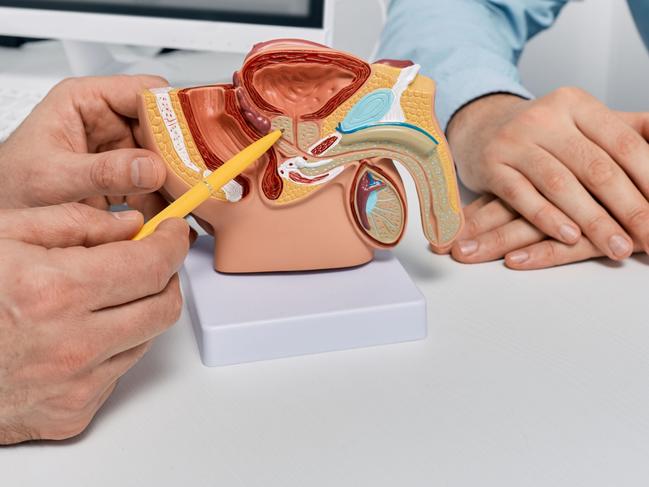
The prostate is part of the male reproductive and urinary system, but in around 2.8 million older Australian men it has become enlarged and left untreated can cause serious health problems.
A healthy prostate should be about the size of a walnut, but an enlarged prostate can grow to the size of a lemon. It can then cause lower urinary tract symptoms such as poor urine flow, the inability to empty the bladder properly and even an urgent need to pass urine.
University of Melbourne Professor Helen O’Connell is president of the Urological Society of Australia and a urological surgeon.

“BPH is an incredibly common problem that can cause urinary tract suffering in men,” she said.
“When the bladder is struggling to deal with an obstructed prostate it can make men experience urgency, frequency and even urge incontinence.”
Urge incontinence is the involuntary loss of urine.
Professor O’Connell said BPH can be effectively treated and improve urinary flow.
“But if we can get in early enough we can also see normalisation of the urgency, frequency and even the urge incontinence problem,” she said.
Professor O’Connell said men experiencing symptoms should seek help from their GP and get effective treatment.
“Because you may become completely free of the problem.”
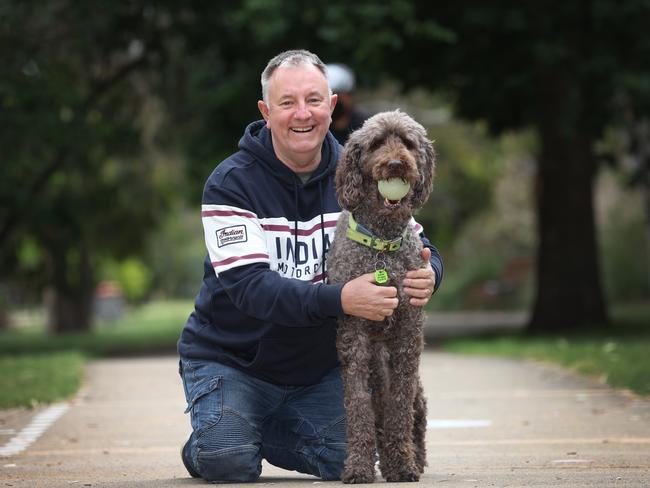
That’s what Melbourne small business owner Grayham Bottomley, 65, did.
He had been experiencing symptoms, but said it wasn’t until they started affecting his sleep and his relationship with partner Janet Brown that he sought medical help.
“In the end I was getting up around a dozen times at night, what felt like every few minutes, and that was causing all sorts of grief for me and my partner,” Mr Bottomley said.
“Initially I just thought it was an age thing; but then it got a little worse and I started talking to my dad who had a similar situation and had it treated, so I knew then there was a family history.”
But it was a chance encounter with a man he met while walking his dog Molly in the local park that changed everything.
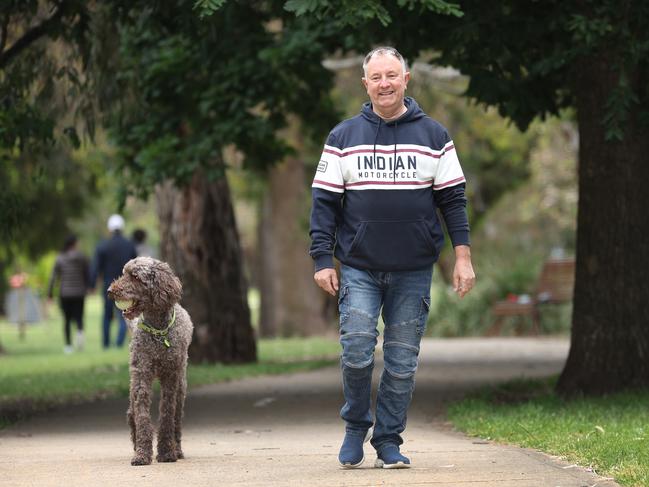
Mr Bottomley said they got talking and eventually the topic turned to prostate problems.
His new mate had a medical background and suggested he visit a specialist.
Mr Bottomley would later have minimally-invasive steam therapy and says it was life-changing.
“Problem solved,” he said.
Steam therapy is an outpatient procedure performed under general anaesthesia and requires no incisions. It works by creating a “steam ball” that helps to shrink surrounding prostate tissue.
Mr Bottomley was one of the more than 1000 men who took part in the survey and said he was surprised to learn so many men put up with the problem.
His advice to them was to get it sorted and speak to somebody.
The men in the survey were asked about their symptoms, awareness and the impact of prostate issues on their personal, professional and social life.
Sadly, many reported prostate problems impacted the quality of their daily life and also their confidence and social life.
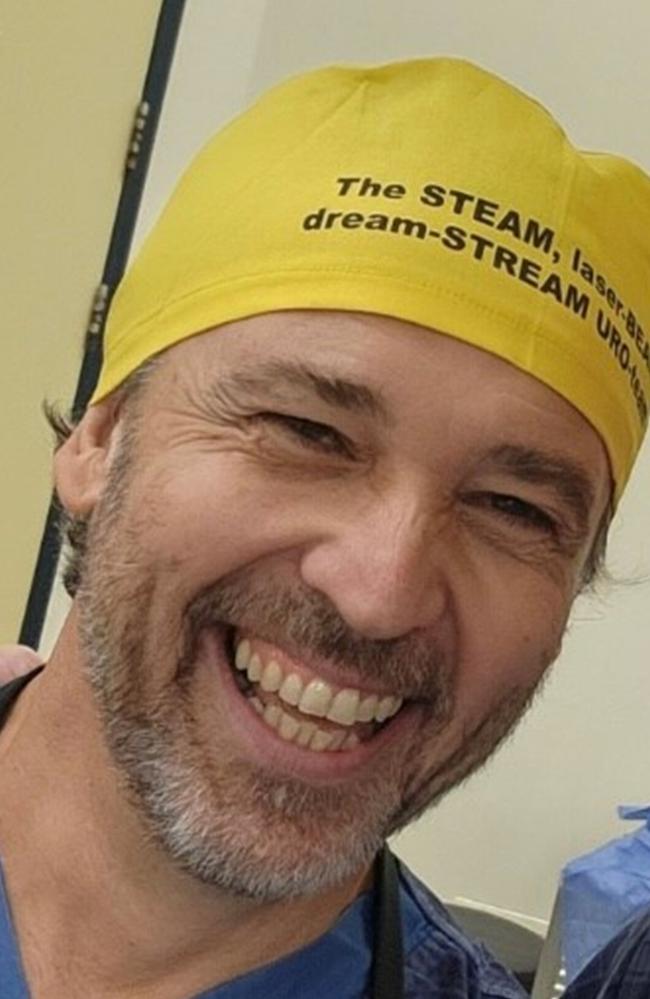
The Director of Uro-Oncology and head of robotic surgery at Chris O’Brien Lifehouse (Cancer Treatment Centre) in Sydney, Professor Henry Woo, said many Aussie men fail to recognise how common and potentially serious the condition is.
“Living with an enlarged prostate is life-disrupting,” Prof Woo said. He is also Urology Department Head at Blacktown Mount Druitt Hospital and warned an enlarged prostate compromises the lives of two in three affected men.
“A concerning 58 per cent experience an urgent need to pee, while 61 per cent make regular toilet trips at night,” Prof Woo said.
“This in turn, affects their energy levels, concentration, and productivity, and regularly disturbs their partner’s sleep.
“In fact, sleep disturbance is a daily challenge for the nearly two in five (39 per cent) men battling the condition.”
Doctors describe an enlarged prostate as a common and treatable urological condition.
Dr Jo Schoeman is a specialist urology surgeon at The Wesley Hospital in Brisbane with an interest in the management of BPH, prostate cancer and urinary incontinence.
He also had steam therapy when he was treated for the condition.
“I’m a 55-year-old guy and I started developing prostate issues or urinary tract symptoms about four years ago,” Dr Schoeman said.
“I tried the medications and they gave me side effects. So being a younger bloke I thought well, I am doing Rezum (steam) therapy for my patients so … I had it and it’s the best thing I’ve ever done.”
He urged men to stop putting their heads in the sand if they have symptoms.
“The symptom that bothers most men is the urge to get up at night,” Dr Schoeman said. “Don’t ignore those symptoms and hope they will go away. They won’t, they will get progressively worse.”
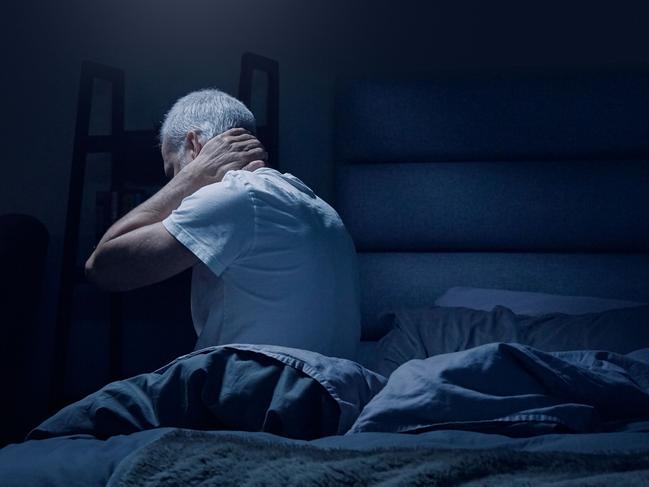
Dr Schoeman said treatment starts conservatively, and that around 80 per cent of men will respond well to medication and conservative therapies and also to steam therapy which has been available in Australia for about five years.
“I think guys are becoming more open to talking about things,” he said.
“For those who have gone through some issues with urology or their prostates they become more willing to share but sometimes it can get overwhelming for other guys who don’t really want to know about this.
“Sometimes it is simply a matter of asking, ‘how’s your flow’ to get the conversation started.
“Don’t suffer in silence. There are therapies available.
“Men can chose medical, surgical and minimally invasive techniques. Get down to it. Seek help.”




